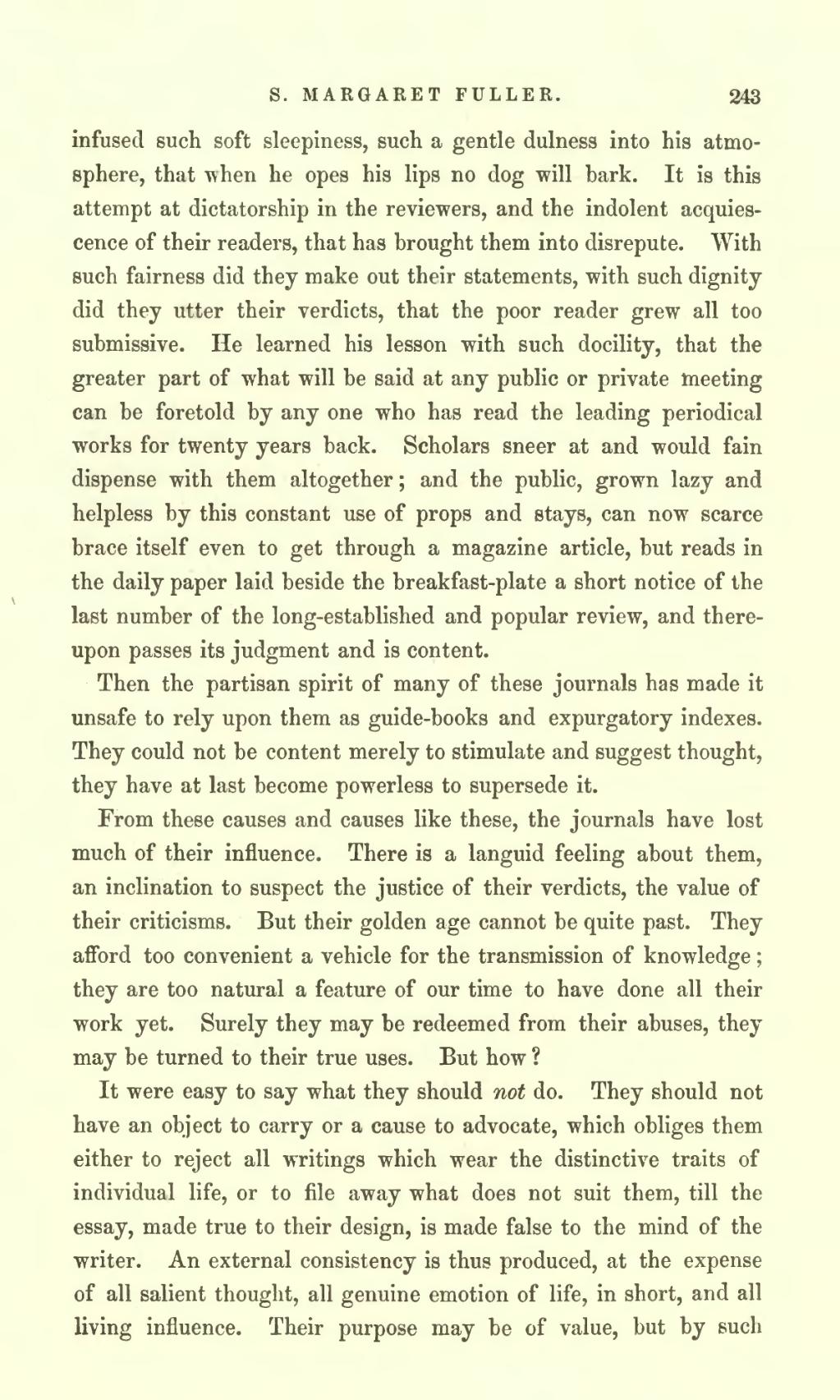infused such soft sleepiness, such a gentle dulness into his atmosphere, that -when he opes his lips no dog will bark. It is this attempt at dictatorship in the reviewers, and the indolent acquiescence of their readers, that has brought them into disrepute. With such fairness did they make out their statements, with such dignity did they utter their verdicts, that the poor reader grew all too submissive. He learned his lesson with such docility, that the greater part of what will be said at any public or private meeting can be foretold by any one who has read the leading periodical works for twenty years back. Scholars sneer at and would fain dispense with them altogether; and the public, grown lazy and helpless by this constant use of props and stays, can now scarce brace itself even to get through a magazine article, but reads in the daily paper laid beside the breakfast-plate a short notice of the last number of the long-established and popular review, and there upon passes its judgment and is content.
Then the partisan spirit of many of these journals has made it unsafe to rely upon them as guide-books and expurgatory indexes. They could not be content merely to stimulate and suggest thought, they have at last become powerless to supersede it.
From these causes and causes like these, the journals have lost much of their influence. There is a languid feeling about them, an inclination to suspect the justice of their verdicts, the value of their criticisms. But their golden age cannot be quite past. They afford too convenient a vehicle for the transmission of knowledge; they are too natural a feature of our time to have done all their work yet. Surely they may be redeemed from their abuses, they may be turned to their true uses. But how?
It were easy to say what they should not do. They should not have an object to carry or a cause to advocate, which obliges them either to reject all writings which wear the distinctive traits of individual life, or to file away what does not suit them, till the essay, made true to their design, is made false to the mind of the writer. An external consistency is thus produced, at the expense of all salient thought, all genuine emotion of life, in short, and all living influence. Their purpose may be of value, but by such

